Perceval House W5: Where Local Democracy In Ealing Goes To Die
The Children’s Centres Crusade

Chapter 1: The Art of Political Contradiction
In the London Borough of Ealing, our elected representatives have perfected something remarkable: the ability to hold completely contradictory public positions without experiencing any apparent cognitive dissonance.
Take our Council Leader. On January 15, 2015, he tweeted: “Think its really important that we put people before buildings. Important we keep activities going & that can be done in a different way."

Ten years later, he’s closing children’s centres, buildings where people access those activities.
This isn’t hypocrisy - it’s innovation. Why limit yourself to consistent principles when you can have all the principles, simultaneously?
Mrs. Patel, a parent trying to save her local children’s centre, discovered this when she attempted to navigate Ealing’s democratic processes. What she found was a system so logically perfect that resistance had become mathematically impossible.
Chapter 2: The Democratic Möbius Strip
“Who decides about children’s centre closures?” Mrs. Patel asked at a council meeting.

“The Cabinet,” she was told.
The Cabinet explained they were implementing officer recommendations based on budget pressures created by government policy following community consultation showing residents wanted services maintained differently.
“So who can change the decision?”
“The decision-makers.”
“Who are the decision-makers?”
“The people with authority to make decisions.”
“Who has that authority?”
“The decision-makers.”
Mrs. Patel found herself trapped in a perfectly circular system. To influence the decision, she needed to identify who made it. But everyone who appeared to make decisions claimed to be implementing someone else’s decisions. The decision seemed to exist independently of anyone actually deciding anything.
 Image: Jono Hey, [Sketchplanations](https://sketchplanations.com/mobius-strip)
Image: Jono Hey, [Sketchplanations](https://sketchplanations.com/mobius-strip)
It was like a democratic Möbius strip - no matter which direction you followed, you always ended up back where you started.
Chapter 3: The Mathematics of Progressive Budget Management
The numbers, at least, were clear:
- Cost of councillor allowance increases (2022-2025): Over £1 million
- Savings from closing children’s centres: £750,000
- Council Leader’s pay rise: 70%
- Number of children’s centres being closed in Southall: 3 out of 6

The Council Leader had discovered something revolutionary: you could simultaneously claim budget constraints while voting yourself substantial pay rises. The secret was treating these as completely unrelated mathematical operations.
“We have to make difficult decisions due to budget pressures,” he explained, while awarding himself £58,000 annually.
“But you spent more on pay rises than you’re saving,” Mrs. Patel pointed out.
“That’s a different budget.”
“It’s the same money.”
“You don’t understand local government finance. And we need higher calibre councillor candidates.”
Mrs. Patel was beginning to understand perfectly.
Chapter 4: Environmental Priorities - A Scientific Approach
The Council Leader’s environmental consciousness follows a precise hierarchy, documented through his public responses:
Tier 1 Emergency Response: Eels gasping in the River Brent receive immediate action [pdf) and public concern.
Tier 2 Public Complaint: Someone’s “bag and/or small child” taking up a tube seat merits a public tweet about “Some people.”

Tier 3 Busy Schedule: Children gasping from toxic air [YouTube] in bedrooms get told " I’m very busy.” [YouTube)]
When five-year-old Zion asked him directly, “Peter, why didn’t you help us?” [YouTube] about the gasworks poisoning, the response was so technical that Zion said it was “too sciencey” to understand.
This established a clear principle: if environmental concerns can’t be explained to five-year-olds, they’re probably too complex for five-year-olds to experience.
Chapter 5: The Southall Paradox

Only in Southall can carcinogenic benzene, and naphthalene - which is known to be potentially fatal to some people with African and Asian heritage - be released into the air from the Gasworks development at levels way above legal limits and be simultaneously “not hazardous” according to Ealing Council.

One moment the Headteacher at Blair Peach Primary School is reporting asthma and headaches [p. 10] caused by very strong smells from the Gasworks site; in another moment, the developer’s head of construction is appointed to the school’s board of governors [pp. 7-8] and arranges to remove dead rats from the nursery playground [p. 11]. These events are clearly unconnected.
It’s all perfectly normal in Southall, where kids can be locked in class without ventilation on hot days to protect them from the harmless petrol odour, and the developer’s “community liaison officer” can simultaneously be the chair of Southall’s charity umbrella organisation, an ex-Tory tobacco salesman whose former employer paid for our ex-MP’s research assistant to attend a jolly. Nothing to see here!
Here’s where things get even more interesting. The Council’s own “Southall Reset” [pdf] document acknowledges that “challenges of deprivation, low pay, are particularly acute” in Southall, contributing to “deeply embedded health and wellbeing challenges.”
The Race Equality Commission Report “highlighted the need for an investment in adequate primary care in Southall” and “deeper meaningful engagement, and better conversations with residents.”

The Council’s response to this need for MORE investment? Close children’s centres.
“So you know we need MORE investment?” Mrs. Patel asked.
“Absolutely. The evidence is clear,” they said.
“Then why are you closing children’s centres?”
“Budget pressures.”
“But your own report says we need more investment, not less.”
“That’s a different report.”
“It’s your report. You wrote it.”
“Different department.”
“Same council.”
“Different budget.”
“Same money.”
“You don’t understand local government.”
Mrs. Patel was beginning to understand perfectly. They could officially acknowledge that Southall needed more investment while simultaneously cutting investment. They could document the problem and implement policies that made it worse. Each document existed in its own logical universe, disconnected from actual decisions.
Chapter 6: The MIPIM Negotiations
Every year, the Council Leader attends MIPIM in Cannes - what Private Eye calls a “booze ‘n’ hookerfest” - with expenses paid by Berkeley Group, the company behind the gasworks development that’s been poisoning Southall residents.
He goes to “negotiate hard” with developers.

The documented results of these negotiations:
- More developments approved
- Continued toxic air from gasworks
- Larger councillor allowances
- Closure of community facilities
Either he’s a remarkably poor negotiator, or “negotiating hard” means something different in Cannes than it does in English.
Chapter 7: The Zionist-Anti-Zionist Synthesis
The Council Leader represents Southall Green - 69% BAME, one of the most ethnically diverse wards in Britain. Many of his constituents have strong views about Palestinian liberation.
His attitude? “People who commit themselves to being opposed to Jewish national self determination / liberation aren’t my cup of tea. They can exist, sure, just outside of the Labour movement.”

So he simultaneously represents a diverse community while working to exclude people from that community based on their views about Middle Eastern politics.
It’s a masterclass in representation: represent everyone, except the people whose politics you disagree with.
Chapter 8: The Protection-by-Destruction Innovation
The Council Leader has pioneered a new approach to public service: protecting things by eliminating them.

“We’ve made the decision to protect the front line by working with what we have, rather than allowing Govt Commissioners to slash and burn services,” he explains, while slashing and burning services.
It was like watching someone slash the low-hanging fruit on the trees and then set fire to the orchard; then selling the “infertile land” to developers when there’s nothing to eat.
But that wasn’t even the worst part. Mrs. Patel had discovered something even more troubling. Back in 2012, a group of unelected businessmen had met to play Monopoly [pdf] with public assets. Not the board game - though the principle was identical. They wanted to “sell off our public assets for £20m profit.”

Their target included “buildings used for services for vulnerable adults, children and families.”
“So they planned this years ago?” Mrs. Patel asked the councillor.
“I wouldn’t know anything about that,” the councillor said.
“But you’re closing children’s centres,” Mrs. Patel said.
“We’re protecting services by cutting them,” they explained patiently. “We’ve made the decision to protect the front line by working with what we have, rather than allowing Government Commissioners to slash and burn services.”
“But you ARE slashing and burning services.”
“We’re protecting them by cutting them responsibly.”
“How is closing them protecting them?”
“If we don’t close them, someone else will close them worse.”
“Who?”

“The Government Commissioners.”
“Have they said they’ll close them?”
“Not yet.”
“So you’re closing them to prevent them being closed?”
“We’re protecting them by cutting them.”
Mrs. Patel was beginning to understand perfectly. Round and round she went, trapped in a perfectly logical system designed to make resistance impossible.
The beautiful thing was that everyone was telling the truth. The councillor really didn’t know about the 2012 meeting. The 2012 meeting really had happened. The plan really was being implemented. Nobody was really in charge of implementing it.
Somehow, a decision made by people who didn’t officially exist was being executed by people who officially couldn’t stop it. This allows him to be simultaneously the protector of services and the person closing services - a remarkable administrative innovation.
Chapter 9: Democracy 2.0 - Now With Less Democracy
But the system’s crowning achievement is happening right now. This month - July 2025 - Ealing Council is rewriting the petition rules in direct response to successful community campaigns.
On page 294 of their July 15, 2025 council papers [pdf, see p. 294], you can see democracy being crossed out in real time. They’re removing:
- Residents' rights to ask follow-up questions
- Requirements for senior officers to give evidence
- Meaningful participation in debates about their own petitions

They’ve solved the democracy problem by removing the democratic bits from democracy.
The timing is perfect: after communities proved they could win by building independent pressure (Save Southall Young Adult Centre, Save Southall Town Hall, Save Warren Farm Nature Reserve), the council is changing the rules to prevent it happening again.
Soon residents will be able to petition - they just won’t be able to ask questions, get answers, or participate in discussions about their concerns.
It’s democracy in name only, which is much more efficient than the old democracy where people could actually influence things.
Chapter 10: The Southall Young Adult Centre Miracle
But here’s the thing - resistance is still possible. In 2022, the Council wanted to demolish Southall Young Adult Centre to build 60 flats. The usual process commenced: consultation theater, predetermined decisions, official helplessness.
Then the “Save Southall Young Adult Centre” campaign launched. They didn’t try to work within the impossible system. They built independent pressure. They refused to accept that “decisions had been made.”
They won.
The centre was saved.
“How?” Mrs. Patel asked.
“We stopped playing by their rules,” the organisers said. “We built power they couldn’t ignore.”
Chapter 11: The Impossible Solution
Mrs. Patel realized the children’s centres could be saved the same way. But it would require doing something the system said was impossible: organising outside the official channels, building independent power, refusing to accept predetermined outcomes.
The Council had just changed the petition rules specifically to prevent another people-powered victory. But that only proved they were afraid of effective organising.
The system’s weakness was its strength: it was so obviously absurd that anyone paying attention could see through it.
The Council Leader could tweet about putting “people before buildings” while closing buildings where people accessed services. He could claim to protect services while cutting them. He could represent diverse communities while excluding their political views. He could prioritize eels over children and call it environmentalism.
All of this was only possible because residents had been playing by rules designed to make them lose.
But the campaigns to save the Young Adult Centre, the Town Hall and Warren Farm proved the rules could be broken.
Chapter 12: The Choice
Mrs. Patel had a choice. She could continue navigating the impossible bureaucracy, filing petitions that couldn’t ask questions, attending consultations about predetermined decisions, lobbying councillors who claimed to have no power.
Or she could do what the other campaigners did: build independent power and refuse to accept defeat.
The children’s centres could be saved. But only if parents stopped trying to reason with an unreasonable system and started building the power to change it.
The Council Leader would continue inhabiting his world of simultaneous contradictions, where closing centres meant protecting them and cutting services meant investing in communities.
But Mrs. Patel had learned something important: impossible things happen every day in Ealing politics.
If the Council Leader could be simultaneously progressive and regressive, protective and destructive, representative and exclusionary, then maybe Mrs. Patel could do something equally impossible.
Like save a children’s centre.
The Young Adult Centre campaigners had already shown it could be done.
Now it was the children’s centres' turn.
Mrs. Patel was beginning to understand perfectly. Even this right wing authoritarian Labour government thinks it’s a bad idea to close children’s centres.
Chapter 13: The Engagement Paradox
The Council Leader had perfected the art of simultaneous engagement.
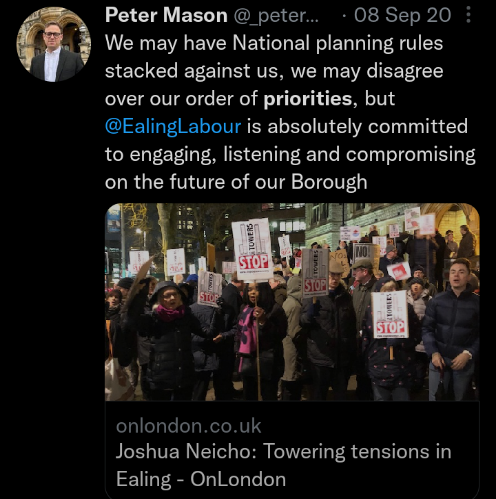
He could tweet about “absolutely committed to engaging, listening and compromising” while sharing photos of residents protesting his refusal to engage, listen, or compromise.
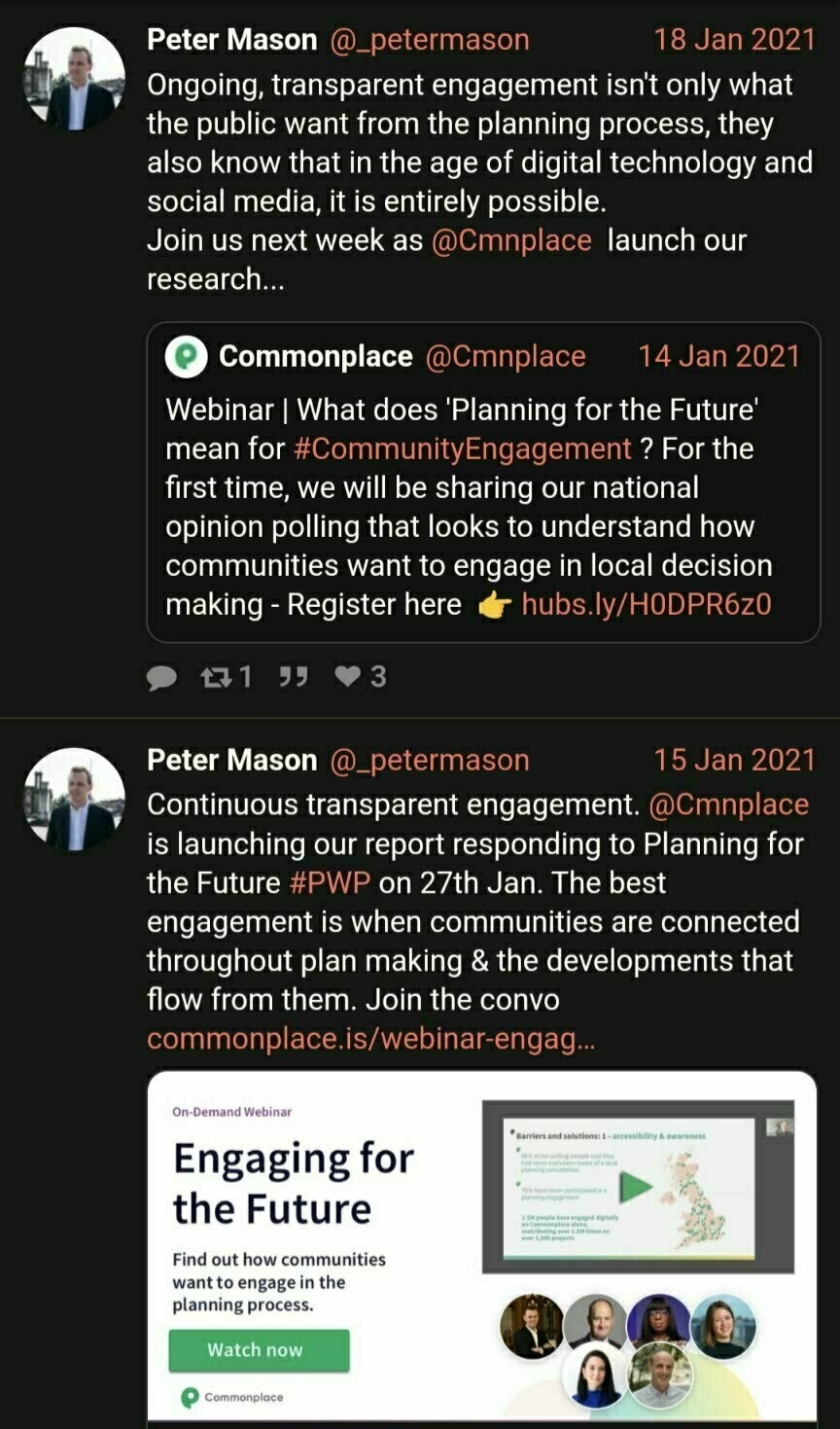
He spoke frequently about “transparent engagement” and “finding the compromises everyone needs to make” - usually while explaining why the compromises residents needed to make were accepting whatever he’d already decided.
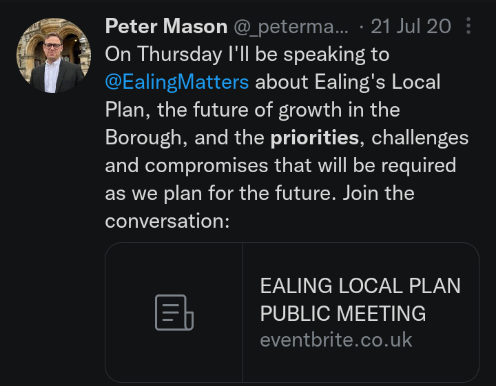
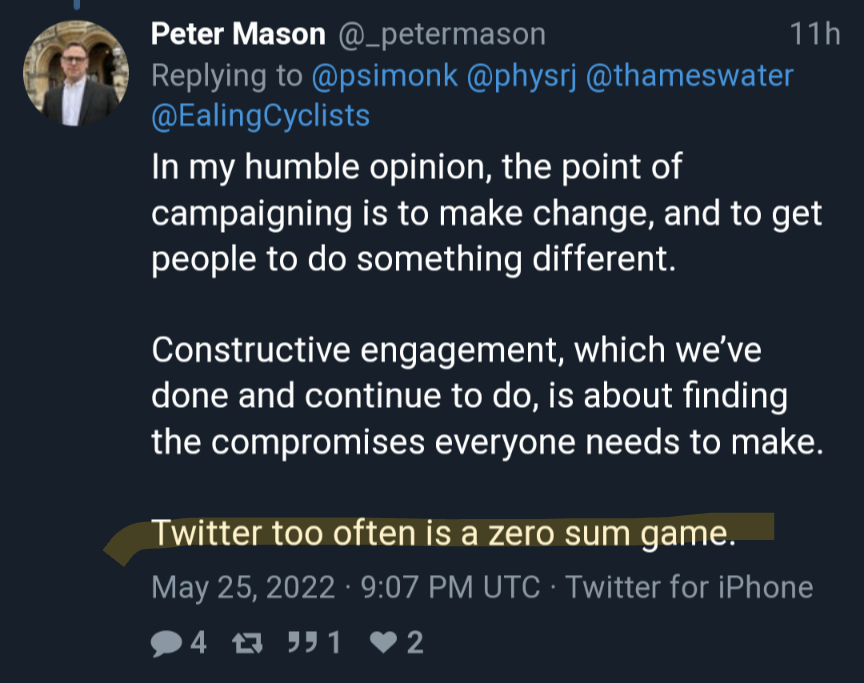
Even councillors who were “most responsive” resigned rather than “effectively endorse his toxic brand of politics.”
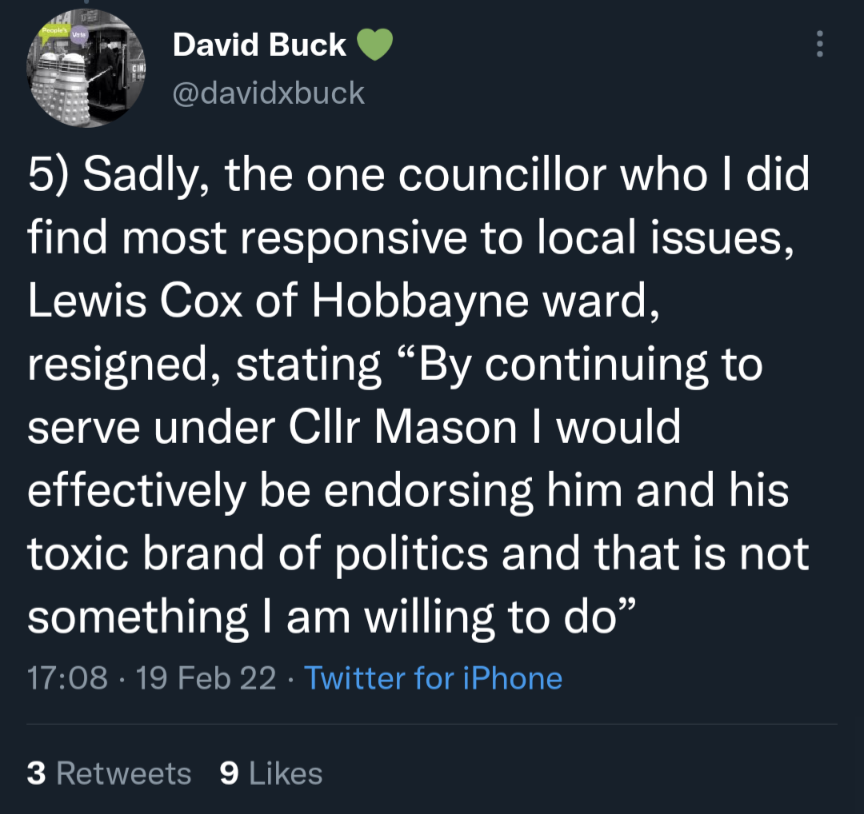
But the real innovation was tweeting “Welcome to Dystopia” while creating it.
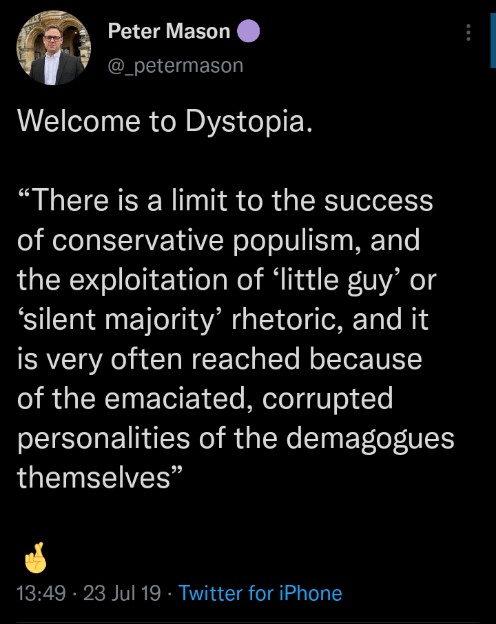
Chapter 14: The Investment Paradox
The Council Leader had achieved something remarkable: he could simultaneously remember genocide while investing in it. “Remember Yesterday, Act Today,” his council posted about the genocide of 8,732 Muslim men and boys in Srebrenica thirty years ago, while investing £112 million in companies enabling genocide of more than 28,000 women and girls in Gaza today. More than 50,000 children killed or injured in Gaza to pay for his pension.
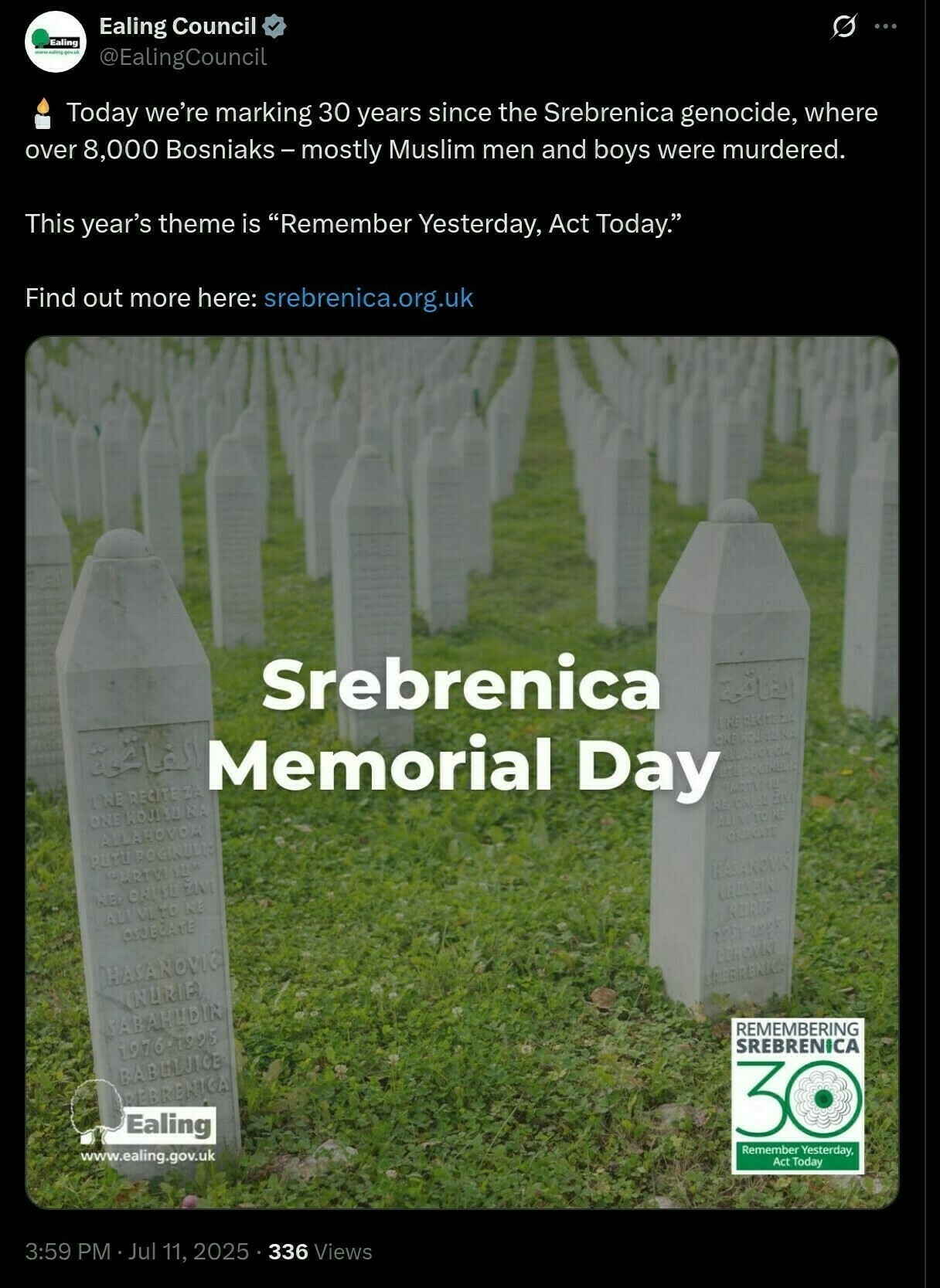
It was beautifully efficient. Why limit yourself to one genocide when you could remember one while funding another? The children understood perfectly.
Equally impressive was his ability to close children’s centres for budget reasons while sitting on the board as a paid director [pdf] of a corporation that had just received £140 million in public funding. The logic was flawless: children’s services were unaffordable, but corporate development was essential.
The Council Leader had mastered the art of proportional response. Children’s centres closing to save £750,000? Budget pressures, difficult decisions, no choice. Sitting on the board overseeing “one of the biggest regeneration schemes in Europe” with £140 million in funding? That was worth £2,000 a year of his valuable time.
It was a masterclass in priorities: Europe’s biggest regeneration project required his oversight, but Southall’s children’s centres were an unaffordable luxury.
He could simultaneously claim there was no money for community services while helping to plan a “mini-Manhattan” in his own borough. The vision was clear: 54-storey towers, yes. Children’s centres, no.
He’d found the perfect balance: cut services locally to save money, earn money regionally to oversee developers' profits. It was like a perpetual motion machine of fiscal responsibility.
Chapter and Verse: The Evolution of Enlightenment

In 2010, our future Council Leader shared his frustration about “sitting around not understanding all this punjabi” at community meetings in the area he would later represent.
By 2020, he had evolved. “Words have consequences,” he tweeted. “Impact is as important as intent. Culture is defined by leadership.”

Ten years of personal growth had taught him that words matter. Which made it remarkable that he could simultaneously lecture about cultural sensitivity while closing community centres in the same diverse communities he’d once struggled to understand. It was a masterclass in progressive evolution: you could acknowledge that words have consequences while ensuring your own words from the past had none.
Disclaimer
Readers who think this is all a bit unfair, unbelievable, unhelpful or downright unlawful…
The most revealing evidence of how the system works came from inside the machine itself. In 2022, leaked WhatsApp messages [pdf] from the Ealing Labour councillors' group chat revealed what they really thought about their leadership.
Mason’s own Labour colleagues called the Council Leader “callous, ruthless, sectarian.”

They discussed votes of no confidence, referenced “corruption and even theft” regarding the previous leader, and debated “bribes” and “rewards” for loyalty. Meanwhile, publicly, they maintained perfect unity and collective responsibility. It was the perfect illustration of how the system works: private recognition of the problems, public performance of harmony.
Mrs. Patel understood perfectly. The same councillors who privately criticised authoritarian leadership accepted Mason’s cabinet positions and pay rises to sit in silent support during council meetings.The leaked messages proved Mrs. Patel wasn’t imagining the contradictions - even the people inside the system could see them. They just couldn’t say so publicly.
URGENT support to fund a legal challenge to Ealing Council’s decision to close 10 children’s centres.
Sources: All tweets, council documents, and quotes are publicly available and linked in the original post at https://davidmarsden.info/2025/07/11/perceval-house-w-where-local.html
Try your hand at democracy in Ealing with our fun interactive FAQs, budget calculator and decision-making process explainer!
Related reading: Southall Under Siege | The Property Lobby | Air Quality Strategy Response | Action you can take | Think of the children | Save Ealing Children’s Centres (official campaign website)